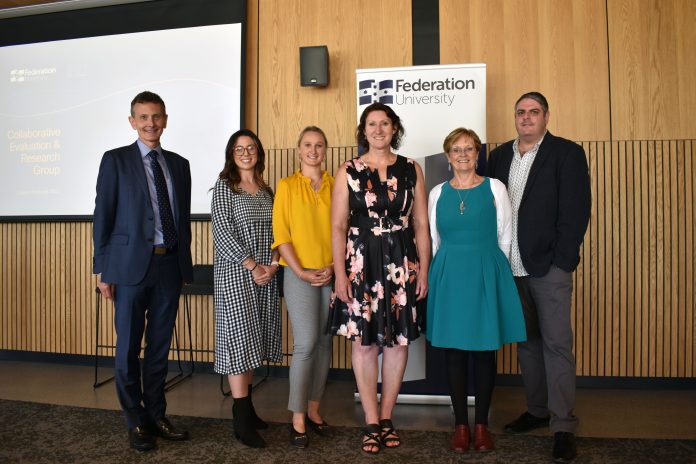
Alyssa Fritzlaff
FEDERATION University Australia’s Gippsland Campus launched the Collaborative Evaluation and Research Group (CERG) on February 21.
Led by its director, Associate Professor Joanne Porter, the body supports non-government and community organisations to evaluate projects.
CERG began its work in 2018, and has since then helped numerous organisations roll out important initiatives and programs, apply for funding and use funding in the best way possible.
It also help groups evaluate what elements of projects were not as successful, and how things might be improved moving forward.
Dr Porter’s team, collaborators and members of Federation University staff were there to witness the group’s official launch.
While the CERG team is comprised of about seven staff, three of which are full-time, Dr Porter said that she considers the whole of Federation University as part of her team.
“What we do is we look at a project… and pull these experts in and they become the core team,” she explained.
“I think over the course of last year, I probably have 50 different individuals that were part of the projects.”
CERG started its work in partnership with Latrobe Health Assembly, helping to co-design
the Latrobe Health and Wellbeing Charter.
“We did a series of community engagement activities right through, so it was the community voice coming through that Health and Wellbeing Charter,” Dr Porter said.
The group works with a wide variety of organisation on a number of different programs,
campaigns and events.
“All the work we do is done in partnership,” Dr Porter said.
“We work with the project team… and we start with a measuring success workshop. We help them to work with SMART objectives.
“We help them to hone down their big visions to measurable data, and then we collect it from various sources.”
Federation University vice-chancellor and president, Professor Duncan Bentley said a major part of CERG is making sure funding is going to the most beneficial places for the community.
“As we come into two sets of elections, it’s going to be absolutely critical that any money which is promised at election time is very carefully evaluated. So that as the funding comes we are able to allocate it to those projects which will have maximum impact for the community,” he said.
“Gippsland is going through a major process of transformation… so how can we make sure that Gippsland itself determines its future, rather than having someone else do it for them.
“In order to get a seat at the table, we’ve got to go in with evidence and data as to what works and what doesn’t, and what our community wants.”











